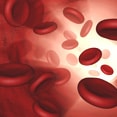
Johnson & Johnson has teamed up with Massachusetts General Hospital to develop and market a blood test that can detect a single cancer cell among a billion healthy cells in a person’s blood. While it might take at least 5 years before the test is widely available, it is a step closer to personalized medicine.
Some cancer cells can break away from the origin and travel throughout the peripheral blood. This test uses a microchip resembling a lab slide, which is covered in 78,000 tiny posts coated with antibodies that bind to tumor cells. Only cancer cells will “stick” to these posts. Studies of the chip have been published in the journals Nature, the New England Journal of Medicine and Science Translational Medicine.
The earlier cancer is detected, the more hope there is for a cure. Many cancers are undetectable until they reach a late stage, while others, such as breast cancer, require screening and radiation exposure. Typically, many cancers are diagnosed through needle biopsies. These may not always provide enough of a sample to determine what genes or pathways control a tumor’s growth. Some patients only live long enough to try one or two treatments, so a test that identifies cancer cells in the blood and can gauge success sooner or dictate treatment could give patients more options.
Initially the test would be used for those who had cancer in the past or are in the process of being treated, and it would complement existing tests like x-rays, CT scans, and PET scans. But the long-term hope (in the much more distant future) is that this test can be used in conjunction with routine screening.


